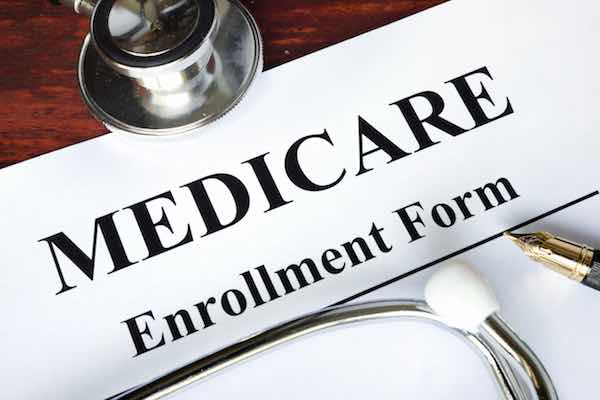Medicare’s General Enrollment Period is currently underway until March 31. This affects Federal retirees who:
- Chose not to sign up for Medicare during their Initial Enrollment Period when they turned 65,
- Currently are not enrolled in Medicare, and
- Now want to be covered by Medicare.
Medicare is the federal health insurance program for people who are 65 or older, certain younger people with disabilities, and people with End-Stage Renal Disease (permanent kidney failure requiring dialysis or a transplant, sometimes called ESRD).
Federal employees have an unusual situation as they can continue to participate in the Federal Employees Health Benefits (FEHB) Program into retirement without being required to sign up for Medicare.
As a result, while the majority of Federal retirees choose to take both FEHB and Medicare Part B when they become eligible, that leaves thousands of retirees without Medicare coverage, a decision they sometimes regret later.
In contrast to the Federal sector, many private employer-sponsored health plans are dropping retiree coverage altogether or requiring retirees to sign up for Part B in order to maintain their retiree health insurance, so most private sector retirees sign up for Medicare Part B when they turn age 65.
What is the General Enrollment Period?
During the Medicare General Enrollment Period, which occurs annually between January 1 and March 31, individuals who passed up their initial opportunity to enroll in Medicare have a second opportunity to enroll.
Those enrolling during the General Enrollment Period will see Medicare Part B coverage begin July 1. In addition, most likely they will have to pay a late enrollment penalty.
If you don’t sign up for Part B when you’re first eligible, you’ll have to pay a late enrollment penalty. You’ll have to pay this penalty for as long as you have Part B. Your monthly premium for Part B may go up 10% for each full 12-month period that you could have had Part B, but didn’t sign up for it.
For Federal retirees who have only FEHB coverage, their health plan provides their primary coverage. For retirees covered by FEHB and Medicare, Medicare is the primary insurer and FEHB provides secondary coverage.
Why retirees change their mind about Medicare
Over time some Federal retirees who initially declined coverage find it advantageous to later pick up Medicare coverage. Reasons to enroll later can include:
- Retirees were healthy at the time of their Medicare Initial Enrollment Period and chose to decline the coverage to avoid having to pay the Part B premiums. Later, deteriorating health brings additional costs so that the Part B premium looks less expensive when compared to increasing medical costs for chronic illnesses.
- Retirees drop FEHB coverage because of its cost and now need health insurance. Note: Once a Federal retiree cancels their FEHB enrollment, it is very unlikely they will ever be allowed back into the FEHB Program.
- The cost of Part B premiums can be partially offset in certain FEHB plans that waive deductibles, copayments, and coinsurance if Medicare is the primary payer of your health costs.
- Some FEHB plans are now offering to reimburse at least part of the cost of Part B premiums to encourage retirees to sign up. While you cannot change FEHB plans until next fall, it is worth checking to see which FEHB plans may reimburse you for at least part of your Part B premiums.
Making Medicare mandatory for Federal retirees
Last year, a U.S. House of Representatives committee considered a plan to make Medicare Part B mandatory for Postal retirees. Some advocates for Federal retirees feared that if the bill passed, it would pave the way to making Medicare Part B for all Federal retirees.
National Active and Retired Federal Employees Association (NARFE) President Richard G. Thissen spoke in opposition to the bill:
While the majority of federal and postal retirees choose Medicare when they turn age 65, those without it actively made the decision not to enroll. The reasons for doing are numerous and personal, and it was their choice. That choice should not be eliminated now because Congress is unwilling to make more politically difficult decisions.
That bill, H.R. 756, may still be considered by Congress later this year even though its chief House sponsor, Jason Chaffetz, is no longer in Congress.
Even if Medicare coverage never becomes mandatory for Federal retirees, many retirees still decide that signing up for Medicare would be advantageous for them. If they declined Medicare coverage during their Initial Enrollment Period, they have until March 31 to make that decision for 2018.
More information on enrolling in Medicare is available at https://www.ssa.gov/benefits/medicare/.



